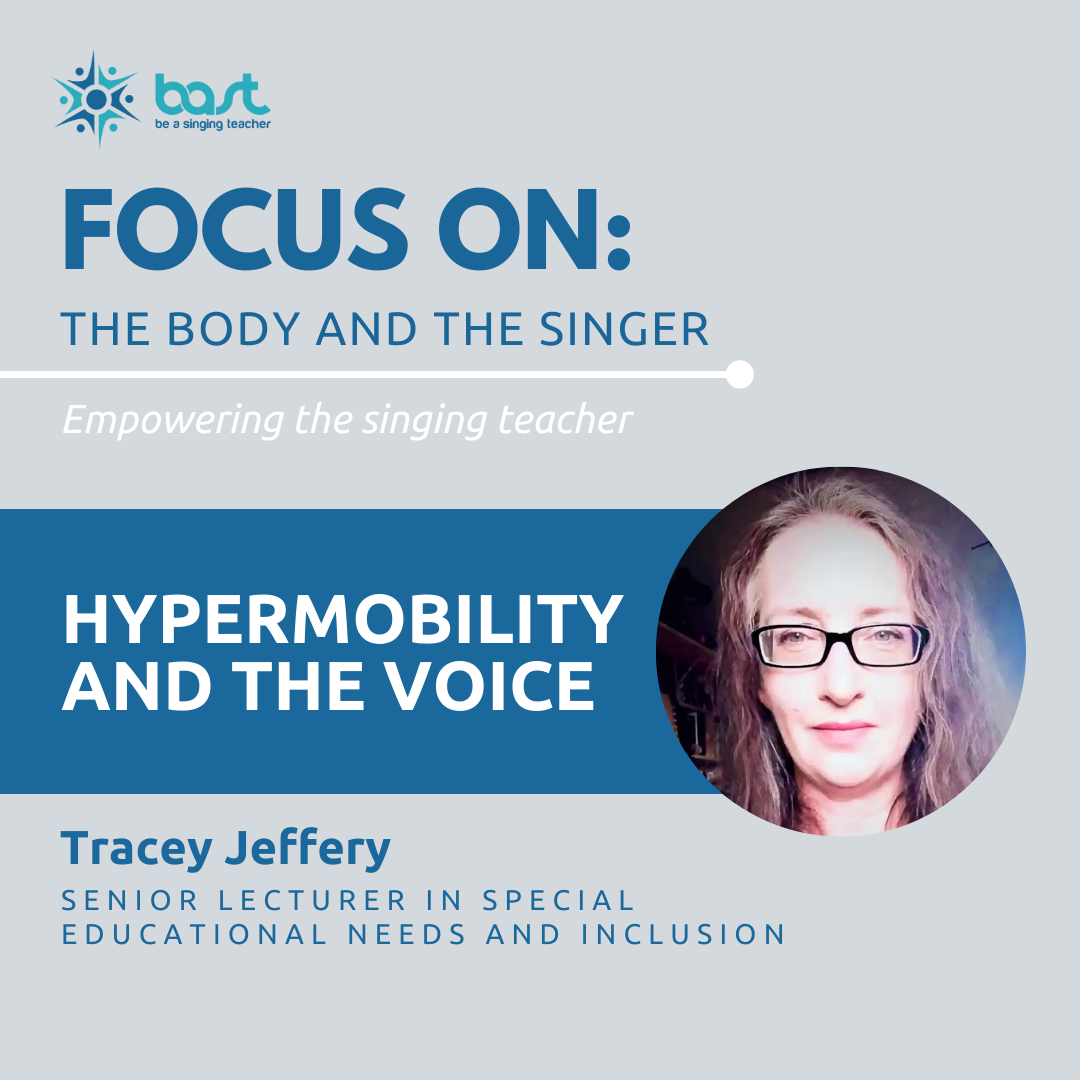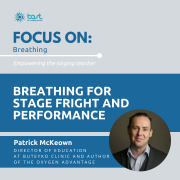This is a single presentation recording from the live Focus On: The Body and the Singer event held on June 27th 2022
The Focus On series is an in-depth look at topics relevant to singing teachers. Delivered by industry experts and experienced pedagogues.
Also available as part of a bundle package with the whole day of recordings.
Please read our Digital Purchase Policy before buying.
Learn how hypermobility can affect voice function and the ability to perform in people with hypermobile spectrum disorders. The session will explain how hypermobile joints and lax ligaments might cause problems using the voice, and how associated conditions can affect voice function and the ability to use the voice for speaking or performing. Learn more about the physiological and multisystemic symptoms of hypermobility, and what can be done to support singers and voice users with hypermobile conditions, including those diagnosed with Hypermobility Spectrum Disorder, hypermobile-Ehlers Danlos Syndrome, and Down Syndrome.
By the end of this session, you will:
- Be familiar with common physical and systemic manifestations of hypermobility spectrum disorders(HSD)
- Know how hypermobility disorders can affect vocal production and singing abilities
- Identify ways to support or manage voice production in singers with HSD
About Tracy Jeffery
Tracy Jeffery currently works as a Senior Lecturer in Special Educational Needs and Disabilities, at Bishop Grosseteste University, Lincoln. Before teaching in HE, she had used her skills as an amateur musician to work with young adults and children who had a combination of speech and language difficulties and learning difficulties. Whilst studying for a Masters in Speech, Language and Communication Impairment, she noticed how motivated to sing many young people were, even if they could not, or did not, speak. This sparked her interest in the potential to use music to support voice and speech, and initiated a research project that examined how a series of singing lessons affected speech and voice in some of the young people she worked with. To her surprise, just 6 weeks of singing activities were enough to make a clear change to the voice quality in her participants who also had Down Syndrome. A few years later, she began a PhD that examined the potential of music to support speech in people with Down Syndrome. Part of this involved examination of voice production in speech tasks and singing tasks, and analysis of the different factors that supported or hindered efficient voice production.
Tracy’s research and teaching interests centre on the potential of music to support learning, communication and wellbeing. She tried hard to put her beliefs into practice: in more sociable times, she is active in her local Community Choir, Lincoln’s Poacher Morris, and Lincoln’s African-styled drumming group.
Paper: ‘I Have Had to Stop Singing Because I Can’t Take the Pain’
Website: bishopg.ac.uk/staff/tracy-jeffery
DISCLAIMER
Please note that this video and the presenters involved do not provide medical advice. The content in this video and on this website is intended for informational purposes only. It is not a substitute for professional medical advice, diagnosis or treatment. Never ignore professional medical advice when seeking treatment because of something you have read, heard or watched on the basttraining.com Site. If you believe you have a medical emergency, immediately call your doctor or emergency service.
Get value for money by purchasing the whole event bundle! Click HERE to find out about the other topics presented on the day





